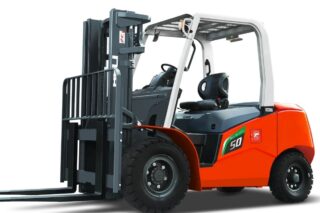The manufacturing sector is currently grappling with one of its most significant challenges: a severe labor shortage. As industries increasingly adopt digital technologies, the demand for skilled workers is rising, while the availability of qualified talent is declining. To remain competitive, companies must address this shortage with innovative strategies, including automation and smart manufacturing solutions. Rockwell Automation has launched Connected Worker Plex to tackle this workforce crisis.
| KEY INSIGHTS |
|---|
| 1/ Labor Shortage Crisis: The manufacturing industry faces a critical workforce shortage due to aging demographics, low interest from younger workers, and the rising demand for specialized digital skills. 2/ Skills Gap in Manufacturing: As manufacturing adopts advanced technologies like AI and robotics, companies struggle to attract, train, and retain workers with the necessary skills to manage these systems. 3/ Rockwell Automation’s Plex Solution uses automation and real-time data tools to reduce labor dependency, streamline production, and enhance workforce efficiency. 4/ Empowering Workers with Technology: Plex offers user-friendly, real-time tools and training that simplify operations, making manufacturing roles more attractive and accessible to younger workers. |
Understanding the Workforce Crisis in Manufacturing
Manufacturers worldwide are facing a critical labor shortage. This workforce crisis, in which aging demographics, changing worker preferences, and the rapid pace of technological advancement, play a critical role, threatens to disrupt industrial output and growth.
According to a recent report from ABI Research, 50% of the top ten workforce challenges are directly related to people. These include difficulties attracting and retaining skilled labor, concerns about employee well-being, and the struggle to train workers to adapt to new digital tools and technologies.
In a press release, Michael Larner, Analyst at ABI Research commented on the findings:
“An interesting find from the survey is that some of the biggest issues for manufacturers involve people, not technology. Recruiting, retaining, and upskilling staff are among the top challenges manufacturers face today. Skilled individuals are required to operate and maintain equipment while also focusing on optimizing production lines. Simply put, there aren’t enough of these individuals in the workforce today.”
A major contributor to the workforce gap is the aging population of manufacturing employees. Many are retiring and there are not enough younger workers stepping in to fill the void.
This is the case a Japan, a super-aging society that has significant long-term implications for its workforce. In a previous article, we dived deeper into the socio-economic issue the country is facing and how it has no other choice but to rely on technology.
Additionally, in developed countries, younger generations are showing less interest in manual labor roles within the manufacturing industry. They are often seeking positions that offer more flexibility, creativity, and use of modern technology. As a result, industries that fail to adapt and make jobs more attractive to the new workforce face even greater difficulty in hiring the talent they need.
READ ALSO
The Growing Need for Skilled Workers
As automation and digitalization continue to reshape manufacturing, the need for highly skilled workers to manage and maintain these advanced systems is growing. Tasks that were once manual now require knowledge of robotics, artificial intelligence (AI), and other smart manufacturing tools. Industrial companies are indeed increasingly dependent on technical specialists to manage the complex systems driving Industry 4.0.
However, filling these positions has become particularly challenging. ABI Research highlights that manufacturing companies are also struggling with upskilling their existing workforce. This is made more difficult by the lack of comprehensive training programs that align with the new demands of digital manufacturing. Without enough workers with the right skill sets, companies face production delays, reduced efficiency, and rising operational costs.
Rockwell Automation’s Solution to the Labor Shortage
One potential solution to the labor shortage comes from industrial automation leader Rockwell Automation. Their Plex Smart Manufacturing Platform offers advanced digital tools that help attract, retain, and retrain the employees needed in these sectors. This platform integrates cloud-based automation tools with real-time data analysis to streamline production processes, reduce the dependency on manual labor, and empower the existing workforce to become more efficient.
According to Anthony Murphy, Vice President of Product Management at Plex,
“With the introduction of these capabilities for connected workers, Plex is making a strategic leap to address the critical skills shortage in the manufacturing sector. The launch of these new offerings accelerates Rockwell Automation’s global industrial partnerships and reinforces Plex’s mission to attract, retain, and reskill the workforce. This enables manufacturers to meet the challenges of an increasingly dynamic industrial and production environment.”
This solution offers real-time assistance, visual aids, and multimedia content that simplify task execution, minimizing the risk of potential errors. Streamlining the number of applications manufacturers need also reduces the total cost of ownership, shortens return on investment timelines, and mitigates cybersecurity risks.
By simplifying the complexity of modern manufacturing systems and automating routine processes, companies can operate with fewer employees while still achieving higher levels of productivity.
The Plex platform also provides manufacturers with greater visibility into their operations, allowing them to automate routine tasks and reallocate human labor to higher-value activities. By leveraging data analytics, AI, and machine learning, the platform can predict production issues before they occur, minimizing disruptions and increasing productivity.
Empowering the Workforce with Technology
Beyond automation, Rockwell Automation’s approach focuses on empowering the workforce through technology. Their solutions offer workers greater control and flexibility, which can make jobs more appealing to younger talent. Employees no longer need to be experts in complex machinery or programming; instead, they can use intuitive interfaces to manage production lines, troubleshoot issues, and optimize processes. Workers can interact with advanced manufacturing systems in a user-friendly manner, reducing the complexity and time required to train new employees.
According to Allison Kuhn, an analyst at consulting LNS Research, building employee-focused strategies based on technology is becoming crucial to tackling the workforce crisis in manufacturing:
“Connected Frontline Workforce (CFW) applications are now a strategic imperative to tackle the challenges of safety, quality, and productivity. Industry leaders are deploying CFW applications to address skill gaps, improve retention rates, and provide a better overall worker experience through more user-friendly interfaces, interactive training, and real-time information. These solutions not only address current challenges but also help develop employees’ skills to ensure long-term success, making them a critical component of the Future of Industrial Work (FOIW) concept.”
The idea is that manufacturers must rethink their approach to talent acquisition and retention. Offering training programs, competitive salaries, and flexible working conditions are essential to attracting a new generation of workers. Many companies are also exploring partnerships with educational institutions to create pipelines of skilled workers ready to enter the manufacturing field.
Manufacturing jobs can no longer rely solely on traditional methods; the integration of technology and a focus on employee well-being and career growth are crucial for overcoming this workforce crisis.
Experts believe that companies that invest in technology, training, and attractive working conditions will not only overcome labor shortages but also position themselves as leaders in the next wave of industrial transformation.











